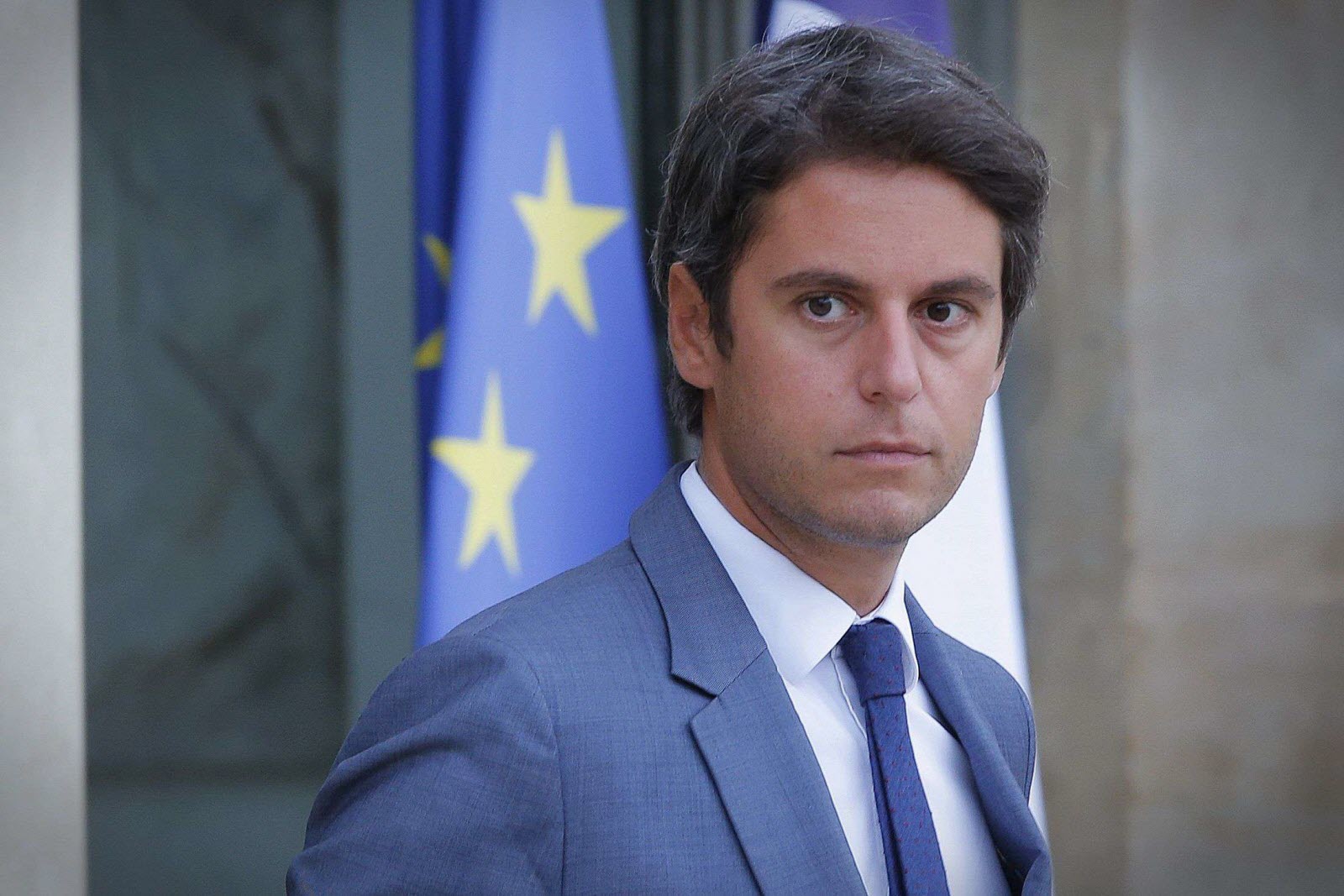IsraelValley Revue de Presse. Notre source de l'article ci-dessous sur Gabriel Attal:
Ynet, un site Internet israélien diffusant des informations générales.
Il fait partie du même groupe que le Yediot Aharonot, le premier quotidien du pays.
Ynet est le portail web le plus populaire d'Israël.
L’étoile montante française d’origine juive pourrait lorgner sur la présidence.
Considéré comme le successeur possible de Macron, Gabriel Attal, 34 ans, est
l'étoile montante de la politique française.
Son père était juif, mais il ne s'identifie pas comme tel bien qu'il soit
confronté à des tweets antisémites après chaque décision importante
qu'il prend.
Gabriel Attal, récemment nommé ministre de l'Éducation en France,
s'est trouvé dans une situation difficile la semaine précédente.
Il s’est retrouvé coincé entre les valeurs de longue date de la république,
qui donnent la priorité à la séparation de la religion et de l’État au sein
des institutions publiques, et une importante communauté musulmane d’environ
10 millions d’individus qui n’approuverait probablement pas sa décision.
SELON YNET (Copyrights):
Mon Dieu! Rising French star of Jewish heritage could be eyeing the Presidency.
Seen as Macron’s possible successor, 34-year-old Gabriel Attal is the rising star of French politics; His father was Jewish, but he does not identify as such although he faces anti-Semitic tweets after every significant decision he makes.
Gabriel Attal, the recently appointed Minister of Education in France, encountered a complex predicament in the previous week. He found himself caught between the longstanding values of the republic, which prioritize the separation of religion and state within public institutions, and a sizable Muslim community of around 10 million individuals who were unlikely to approve of his decision.
Read more:
Gabriel Attal aligned with the principles of the Republic, resulting in a recent ban in September on female students wearing hijabs and male students wearing kippahs in public schools. This decision was prompted by school administrators seeking clarification on acceptable religious symbols, and it reflects an ongoing policy of secularism in schools. For years, students have been prohibited from wearing crosses, kippahs, or any religious attire, including Muslim garments or those associated with other religions.
In France, a country still in the process of healing from the intense riots that ensued following the tragic death of a young Muslim man last June, there were apprehensions the decision would trigger further unrest. However, currently, it appears that the implementation of the decision has been relatively peaceful, with only around 300 Muslim students from various parts of the country being asked to return home and modify their clothing on the first day of school after wearing hijabs to class.
An up-and-comer
In the French Jewish community, which consists of approximately half a million people, there is support for Attal’s decision. According to the President of Conseil Représentatif des Institutions juives de France (or CRIF, the umbrella organization of French Jews), Jonathan Arfi, the ban on religious symbols in schools is part of France’s established policy, with the aim of not identifying students’ religion. « CRIF, along with other Jewish organizations, fully support this. There are, of course, private schools, Jewish and others, where wearing a kippah or any other symbol is allowed, but in public schools, they must adhere to this policy, which is one of France’s values. »
Did anti-semites target Attal following the decision? « In this case, there were no extreme incidents, but there were past instances of tweets and anti-Semitic remarks targeting his Jewish heritage. He faced primarily political attacks from far-left parties and also from elements within the Islamic community who resist the separation of religion and state.
« It’s important to note that this demand for the ban on religious symbols comes from within the education field itself, with school administrators and institutions seeking a clear guideline that aligns with the country’s values. I believe it will be well-received, although there is a specific age group of teenagers in certain areas who oppose and demand the freedom to wear whatever they want, whenever they want. For them, we need to invest in education and provide explanations about the values of the republic and their significance in our shared lives. »






